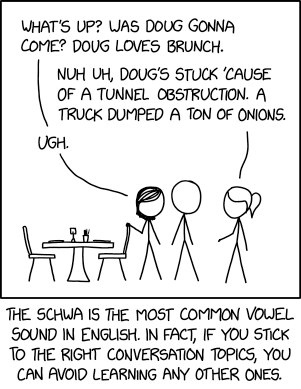I’ve always liked Construction Grammar, and it’s probably the best option here. But this template may need to be loosened a bit, since other structures show this implicature too:zompist wrote: ↑Thu Mar 21, 2024 4:09 pm I bring up Goldberg because her framework allows meanings to be assigned to constructions rather than just words; she also recognizes prototype effects. I think the prototype here is <person A> doesn't <do some positive thing> like <person B who does it really well> with some slippage about the positivity.
You don’t kiss like him.
You don’t kiss like he does.
You don’t kiss the same way as him.
You don’t kiss the same way he does.
If I’m not mistaken, the implication gradually weakens as you go down this list — I’d be most likely to say the last sentence here if I wanted to make a straight comparison.
Incidentally, I feel this example also highlights the weakness of Construction Grammar, which is that it ignores compositionality. ‘A doesn’t X like B’ may has a strong implication, but its basic meaning is predictable purely from its structure as a clause with an adverbial. That’s something which, as far as I’m aware, Construction Grammar doesn’t even attempt to model.
(I seem to recall someone on this board (possibly dhok?) mentioning a derivative theory which could handle these things, but I never looked into it properly and am not sure I can find the post again.)
